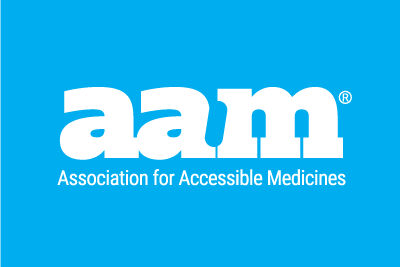We must secure sustainable markets to ensure patient access to generic and biosimilar medicines
This article first appeared in The Medicine Maker on March 22, 2021.
The COVID-19 global pandemic has presented a unique challenge to healthcare systems and infrastructure across the globe, including the generic drug supply chain. Generic drug manufacturers have met this challenge, ensuring a stable supply of life saving medicines for patients throughout the pandemic. However, the long-term sustainability of the generic and emerging biosimilars medicines market faces threats. Policymakers should consider and address the unique challenges facing generics and biosimilars to maintain long-term access to cost savings for patients. In its latest paper, Securing Sustainable Markets, the Association for Accessible Medicines (AAM) recently announced a series of policy proposals intended to ensure patient access to lower-cost medicines.
Generic medicines were not immune to the global supply chain disruptions during the pandemic; a spike in demand for generics created a short-term strain on the supply chain. But the diverse global supply chain proved resilient, and service levels continuously increased – with supply ultimately matching demand. To further support the supply chain and ensure protection from future disruptions, policymakers should expand the Strategic National Stockpile to include essential medicines manufactured in the US. Policymakers can support domestic manufacturers by ensuring the economic conditions exist to justify the use of domestic manufacturing capacity, which will promote a nimble and adaptable supply chain that can continue to meet market demand.
But generic drugs also face competitive imbalances in the market, such as a highly consolidated drug purchasing system controlled by a few major organizations, combined with ill-advised government policies. These policies have historically led to high rates of price deflation and low reimbursement, sometimes driving manufacturers out of the market. For example, Medicaid imposes an inflation penalty that affects generic manufacturers who experience price variability due to fluctuation in purchasing patterns. These generic manufacturers can face millions of dollars in additional rebates for these products, even if there was no change in a particular company’s list price. Amending or repealing the Medicaid Generic Penalty would alleviate the financial risks associated with manufacturing low-margin or low-volume medicines, decreasing the likelihood of generic medicine shortages.
By Craig Burton, AAM Vice President, Policy




